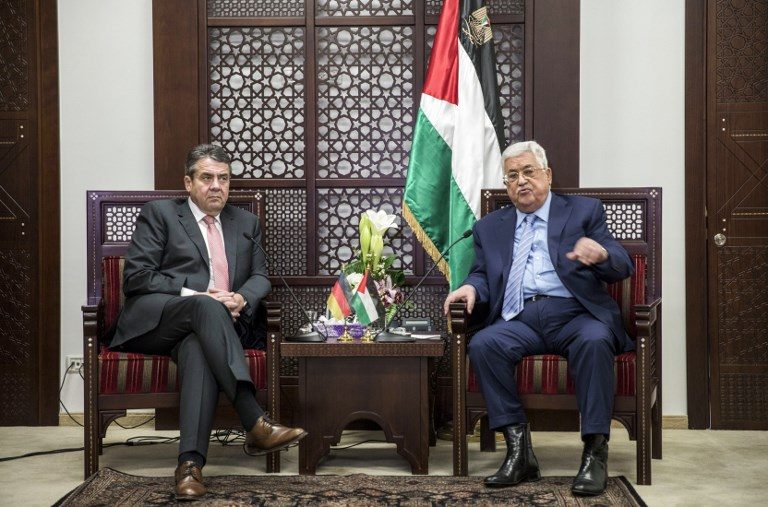SUMMARY
This is AI generated summarization, which may have errors. For context, always refer to the full article.

JERUSALEM – Israeli Prime Minister Benjamin Netanyahu met German Foreign Minister Sigmar Gabriel on Wednesday, January 31, publicly correcting him over Israel’s stance on a two-state solution to its conflict with the Palestinians.
Netanyahu had snubbed Gabriel in April when the visiting diplomat declined to call off meetings with rights groups critical of Israel’s government.
In statements after Wednesday’s meeting, the two were cordial, but Netanyahu interrupted Gabriel when he talked about a two-state solution to the conflict.
Gabriel said he was “very thankful to hear that, of course, also the government of Israel wants to have two states” with secure Israeli borders.
Netanyahu, who heads what is seen as the most right-wing government in Israel’s history, interjected to reiterate his position that his country would have to maintain security control in the Palestinian territories under any peace arrangement.
“No, that we will control security west of the Jordan (river)… that is I think the first condition,” Netanyahu said.
“Whether or not it’s defined as a state when we have the military control is another matter, but I’d rather not discuss labels, but substance.”
A two-state solution has long been the ultimate goal of international efforts to mediate a peace deal between Israel and the Palestinians.
US President Donald Trump has however declined to commit to a two-state solution, instead saying he can support it if both sides agree.
He has also recognised Jerusalem as Israel’s capital, breaking with decades of international consensus that the disputed city’s status must be negotiated.
Prominent members of Israel’s government openly oppose the creation of a Palestinian state, while some call for much of the West Bank, occupied by Israel in the 1967 Six-Day War, to be annexed.
Netanyahu says he wants the Palestinians to govern themselves, but in recent months has declined to specify whether that would mean an independent Palestinian state or some diluted form of autonomy.
‘Mixed signals’
Speaking later in Tel Aviv, Gabriel questioned Israel’s approach to the conflict.
“These, at best, mixed signals do not go unnoticed in Europe, where there is clearly growing frustration with Israel’s actions,” Gabriel said in a speech at a conference of the Institute for National Security Studies think-tank.
“Also in Germany, and frankly inside my own party, young people, the young generation, feel increasingly less inclined to accept what they deem unfair treatment of the Palestinians.
“And it’s increasingly difficult for people like me to explain to them the reasons why our support for Israel must persist. As a friend and close ally, we need to know if Israel is not supporting a negotiated solution to this conflict anymore.”
Gabriel also met Palestinian president Mahmud Abbas in the West Bank town of Ramallah on Wednesday.
European nations have repeatedly warned that chances are diminishing for a two-state solution and called on Israel to halt settlement building in the West Bank.
Such criticism has led to tensions between some European officials and Netanyahu, who accuses them of overlooking Palestinian attacks and what he calls Palestinian incitement against Israel. – Rappler.com
Add a comment
How does this make you feel?
There are no comments yet. Add your comment to start the conversation.